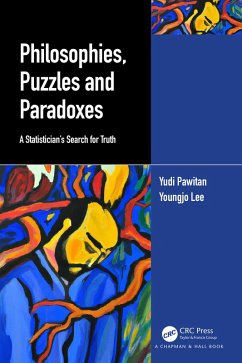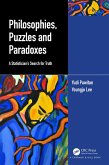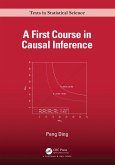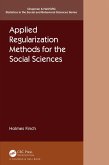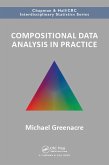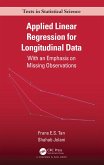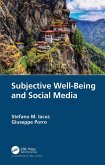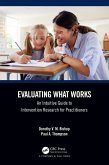Dieser Download kann aus rechtlichen Gründen nur mit Rechnungsadresse in A, B, BG, CY, CZ, D, DK, EW, E, FIN, F, GR, HR, H, IRL, I, LT, L, LR, M, NL, PL, P, R, S, SLO, SK ausgeliefert werden.
~Professor David J. Hand, Imperial College, London
"This is a remarkable book: wide-ranging, ambitious, challenging and profound but also intriguing, fascinating and original. Despite the fact that I have been thinking about the foundations of statistics for a long time, in particular as to how those foundations relate to what we want to do and achieve as practising statisticians, I learned a lot from reading it and also unlearned some things I thought I knew."
~Stephen Senn, from the Foreword of the book
"It takes the reader on a sweeping conceptual journey covering the foundations of statistical inference, epistemology, philosophy of science, probability, decision-making, and more. The book begins with a whirlwind tour of epistemology and philosophy, carefully tailored to its audience and establishing the critical issues at stake in the journey ahead. The book progressively becomes more original and provocative, culminating in Pawitan and Lee's original work on extended likelihood and epistemic confidence and their use in resolving conceptual issues -- the 'paradoxes' of the title -- in the foundations of statistical and scientific inference. A real highlight of the book is the consistently careful and wise treatment of complex and oft-misunderstood foundational and conceptual issues. I highly recommend this book to anyone looking to begin or continue their own statistically- and philosophically-informed journey and 'Search for Truth'."
~Oliver Maclaren, University of Auckland
"A fun and enjoyable read, highly recommended. Mathematicians, statisticians, philosophers, and the inquiring user of data will all learn a lot from it, although probably in very different ways! I especially liked the book's interweaving of the history and foundations of the subject, all the while drawing on many of the classical conundrums that help make it at once fascinating and challenging. And in particular, surely almost everyone will be intrigued by the final part, which discusses some of the classical paradoxes of probability such as the Allais and Ellsberg paradoxes of utility, old chestnuts such as the Monty Hall, lottery, and exchange paradoxes, and Carl Hempel's paradox of the ravens."
~Sandy L Zabell, Northwestern University
"Yudi Pawitan and Youngjo Lee's book is a must-read for anyone interested in the philosophy of scientific inference. It is the first to offer a systematic treatment of a wide range of paradoxes and puzzles in epistemology and philosophy of science from a likelihoodist perspective. Breaking from the usual focus on debates and tensions, the book's likelihoodist stance seeks to cooperate with some frequentist and Bayesian ideas. This effort to bridge the gap between these viewpoints deserves more attention. Moreover, the presentation even makes sophisticated advances in likelihoodism accessible to a broader audience outside of statistics, including philosophers. We are in urgent need of more works like this to foster collaboration between philosophy-minded statisticians and statistics-minded philosophers."
~Hanti Lin, University of California, Davis
"Pawitan and Lee take us on an idiosyncratic and engaging journey through the logical foundations of probability and statistics, often forking out in unexpected, but always rewarding, directions. Original accounts of the major approaches and tools of statistical inference-frequentist, Bayesian, confidence, and, with a special emphasis, likelihood-are firmly located in their broader historical and philosophical context. A particularly valuable feature is the extensive collection of puzzles and paradoxes, whose detailed analysis is both amusing and revealing, and constitutes a refreshing new approach to comparative statistical inference. There is much nourishing food for thought here, both for the professional statistician and for the interested lay person."
~Philip Dawid, University of Cambridge
"I disagree with much of this book, but it's an entertaining and thought-provoking introduction to some challenging questions."
~ Andrew Gelman, Department of Statistics and Department of Political Science, Columbia University
". . . this much awaited reference book does deliver! It brings a perspective on reference priors that no other book approaches and reflects (well) on the authors' careful completion of a coherent theory. Hence, it should appeal to anyone working on the foundations and principles of Bayesian inference. Obviously, it will not change the position of strict subjectivists nor convince non-Bayesians, but it should inspire current and future researchers and complement graduate courses on Bayesian inference. In addition, the huge bibliography retraces the work in the area until today (if less intensely in the most recent years). Kudos to the authors!"
~Christian Robert (Column Editor (2024), CHANCE, 37:4, 63-64

